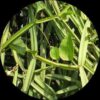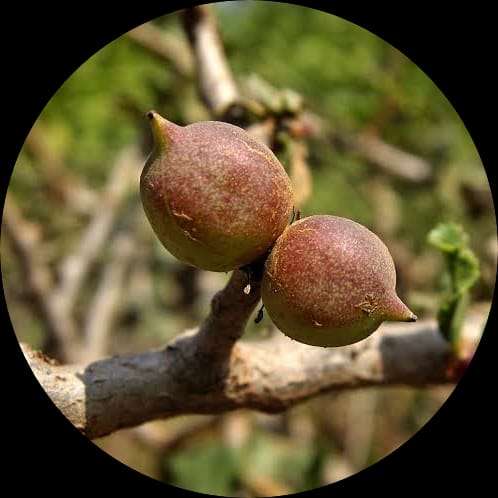- Empty cart.
- Continue Shopping
Guggul (Commiphora Wightii)
₹938.00Current price is: ₹938.00. Original price was: ₹1,338.00.
Genus : Commiphora
“The Guggul Plant is known for its resinous sap and medicinal properties. It has been used in traditional medicine for centuries and is a popular choice for herbal gardens.”
.
Add to cart
Guggul, also known as Commiphora wightii, is a small flowering tree or shrub that is native to India, Pakistan, and Bangladesh. It belongs to the Burseraceae family and is an important medicinal plant in Ayurvedic medicine.
The guggul plant has a short, crooked trunk with a light grey-brown bark, and produces thorny branches. The leaves are simple and deciduous, with 3-5 leaflets. The flowers are small and greenish-white, and are arranged in dense clusters. The plant produces a fruit that is round and fleshy, with a diameter of about 1 cm, containing a single seed.
The resin of the guggul plant, called guggul gum or guggulu, is the most important part used for medicinal purposes. The resin is collected by tapping the tree bark, and is then dried and processed into a yellowish-brown gum resin. Guggul is rich in bioactive compounds, including guggulsterones, which are believed to be responsible for its therapeutic effects.
In Ayurvedic medicine, guggul is used to treat a wide range of conditions, such as arthritis, obesity, high cholesterol, and skin diseases. It is believed to have anti-inflammatory, antioxidant, and lipid-lowering properties, and has been shown to be effective in reducing joint pain and inflammation, as well as in improving lipid profiles.
Guggul is also used in modern medicine as a natural remedy for hyperlipidemia and hypercholesterolemia, as well as in the treatment of acne and other skin conditions.
Overall, the guggul plant is an important medicinal plant in traditional Ayurvedic medicine, and is also gaining popularity in modern medicine. Its resin has a wide range of therapeutic effects and is used to treat various health conditions
Add a review
Currently, we are not accepting new reviews













Reviews
There are no reviews yet